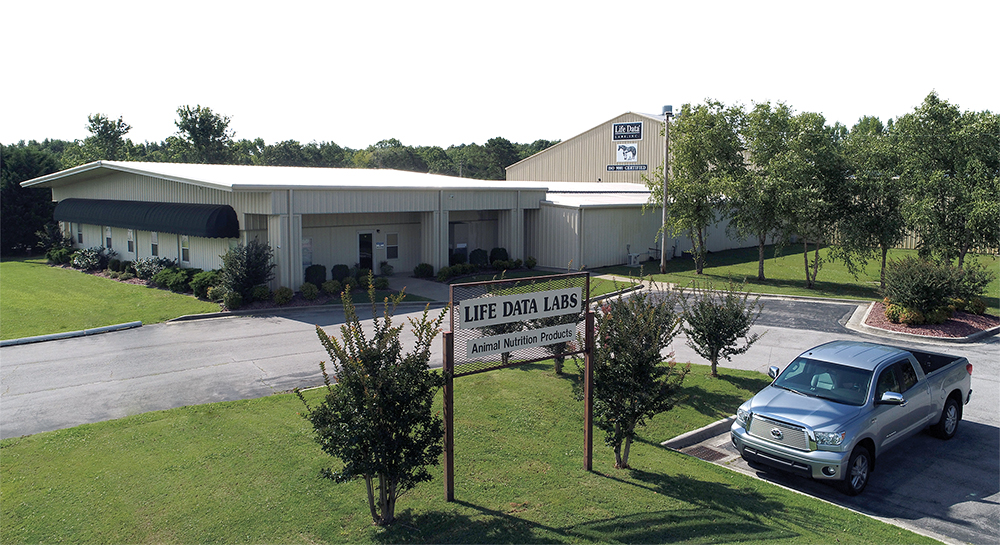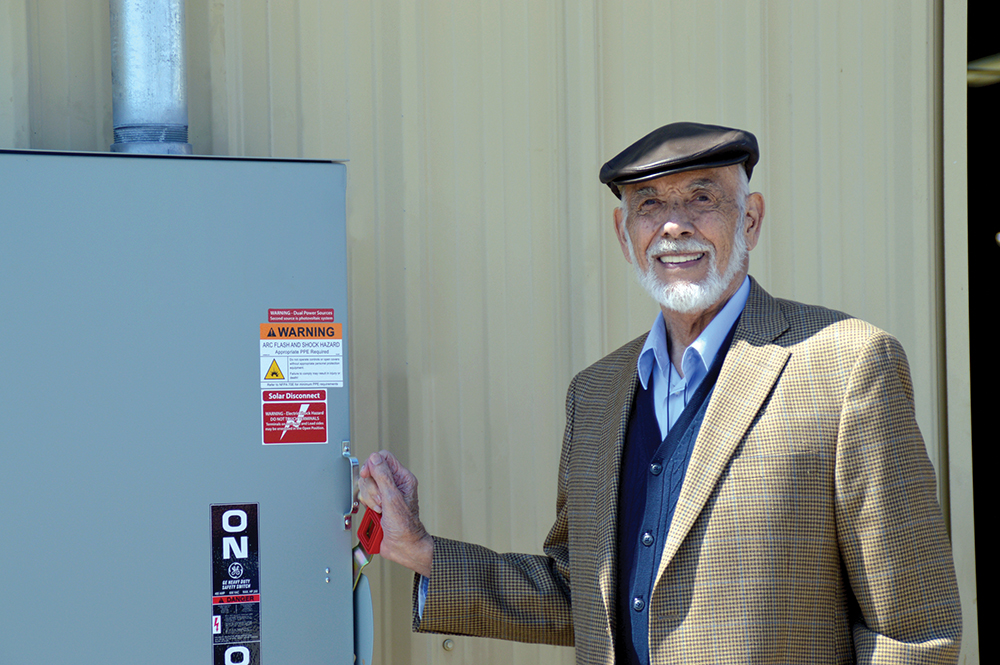 Northwest Alabama’s Life Data Labs helps horses around the world
Northwest Alabama’s Life Data Labs helps horses around the world
By Jennifer Crossley Howard
On first stepping into the manufacturing plant at Life Data Labs, the clean, earthy aroma of teatree oil and alfalfa remind you of a natural foods store. But this place is actually one of the most sought-after animal nutrition and healthcare product businesses in the world.
The majority of its clients are concentrated in the United States and the United Kingdom, and the bestselling products are made in Cherokee, Ala., population: 1,050.
Along this three-mile stretch on U.S. 72 in western Colbert County sit the manufacturing and office headquarters of Life Data Labs, the efforts of a local veterinarian who took a chance on an idea.
In the 1980s, Dr. Frank Gravlee decided to give up animal medicine to study a supplement that nourishes and strengthens horse hooves. Called Farrier’s Formula, it is the business’ top selling product and is sold in more than 40 countries. Its name is an ode to specialists who care for horse hooves.
The heart of Gravlee’s business philosophy harkens back to the one he started his journey for: the horse.
“Dr. Gravlee has always said if you help a horse, he’ll help you back,” says Darryl Spencer, chief financial officer of Life Data Labs.
Gravlee’s business acumen follows a similar notion. Its marriage of local business and forward-thinking practices, such as solar energy that drives production and vacuum-sealed products to preserve shelf life, are what distinguish Life Data Labs.

A yard full of solar panels sit out back, but today it is cloudy. Spencer said determining how to store energy to use on such days is on the list of things to do.
“On sunny days, we make more energy than we can use,” he said.
The Northeast and California are the business’ biggest U.S. markets. Clients include breeders, rodeo trainers in Texas and quarter horse owners in the Shoals who ride the trails.
The brand’s logo that adorns most of its slick packaging — an engraved drawing of a stepping horse — fits the business’ nod to old-school values and dedication to the future. It would look at home in the yellowed pages of an animal anatomy book.
But for all its global reach, some of the most loyal customers of Life Data live down the road in and around northwest Alabama. The Robbins family that operates the Bluewater Creek Polo Club in Killen uses it on their horses, as does Bob Baffert, a thoroughbred trainer in California, whose horses have won Kentucky Derbies and Triple Crowns.
As a story of risk typically goes, critics first underestimated Gravlee when he debuted Farrier’s Formula.
“When he first developed this formula, he called it Skin and Coat,” Spencer says. “Tack stores wouldn’t sell it, so he went it to the state farrier organization.”
Changing the name to Farrier’s Formula helped by appealing to a hardworking trade, Spencer says. Farriers shoe horses every six weeks, and found Gravlee’s formula worked and liked that it was made in state.
A horse’s livelihood depends on its hooves. Properly tending to six-inch hooves that support a thousand-pound animal makes the difference between a healthy horse and one prone to illness.
“If you don’t have strong, healthy hooves, your horse is going to get down very quickly,” Spencer says.

Successful formula expands
The success of the original Farrier’s Formula led to the debut of Farrier’s Formula Double Strength Plus Joint in November.
Much of Gravlee’s research was done on site and at nearby Rosetrail Stables, a 12-acre horse farm where he studied and cared for animals from birth to maturity. His son, Scott, also a veterinarian, does most of the research now.
In Alabama, and the rest of the country, Life Data Labs sells through farriers, veterinary offices and tack and feed stores such as the Colbert Farmers Cooperative in Tuscumbia.
The Shoals boasts a thriving equine community, including a rescue home in rural Florence, says Brandi Robbins, an employee at the co-op. Horse care makes up 90 percent of business. Her brother is a farrier who’s a fan of Life Data.
“It’s one of the few foot supplements we carry because it’s local,” Robbins says. “Everybody likes local stuff, and this is a good product.”
Life Data Labs follows a streamlined business plan and employs 15 workers.
Though machinery in such factories has replaced millions of jobs in recent decades, Dr. Gravlee’s philosophy finds a balance between maintaining jobs while looking to the future.
“If we get to the point we need to hire more people, we think, is there anything we can do to make our equipment more efficient, because you can pay people more to run a machine than supervise other people,” Spencer says.
This local business is one that intends to stay stateside, specifically in Alabama. Warehouses in Canada and the United Kingdom could grow, but production will remain in the Yellowhammer State.
“I anticipate all manufacturing to continue here, forever,” Spencer says. “You can’t outsource quality. If we have any plans to expand, we will do it here.”




